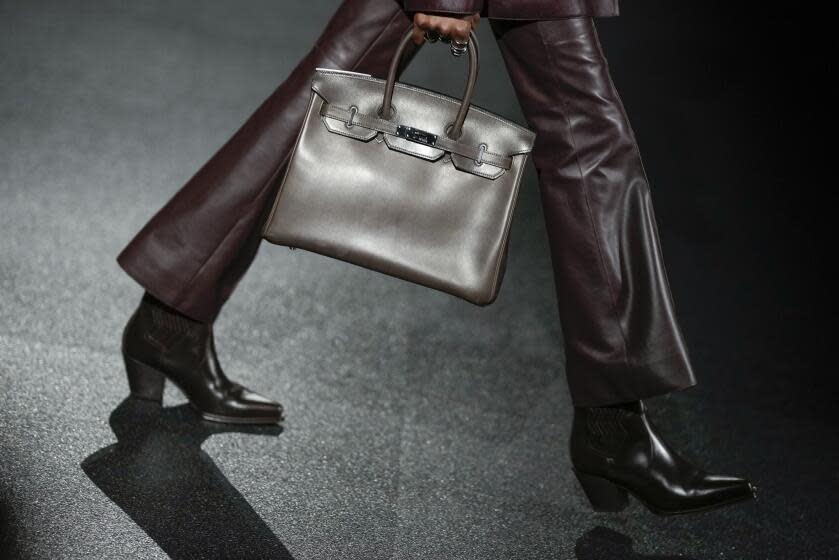Two Californians sue Hermès, claiming Birkin handbags are offered only to repeat customers

Two California residents are suing the French luxury design company Hermès over claims that it sells its Birkin handbags only to customers who have purchased other Hermès items in the past, including the designer's pricey shoes, scarves and belts.
The class-action lawsuit filed Tuesday in San Francisco alleges that customers must have a qualified “purchase profile” with Hermès to gain access to Birkin bags. This violates antitrust law, the lawsuit claims, by tying the purchase of a Birkin to the purchase of other luxury items.
Many see the handbags, named for the British-born actor and singer Jane Birkin, as a status symbol and icon of fashion. The bags sell for thousands of dollars, ranging from the price of a small motorcycle to the price of a small cabin.
Customers cannot purchase Birkin bags on the Hermès website, the lawsuit says, and they are not publicly displayed at Hermès retail stores. Hermès currently operates more than 40 retail stores in the U.S., including eight in California, according to the lawsuit.
“Typically, only those customers who are deemed worthy of purchasing a Birkin handbag will be shown a Birkin handbag in a private room,” the lawsuit says.
Read more: L.A. smash-and-grab trio who targeted Prada, Versace and Gucci charged by AG after LAPD probe
Hermès sales associates are promoting the scheme by encouraging customers to buy multiple other items in order to have the opportunity to buy a Birkin, the lawsuit alleges. The lawsuit is seeking class-action status for thousands of well-heeled customers who bought Hermès items or were encouraged to buy them to be able to purchase a Birkin.
“The unique desirability, incredible demand and low supply of Birkin handbags gives Defendants incredible market power,” the lawsuit says. The lawsuit did not specify how customers would prove they had been victimized by the alleged scheme.
Hermès did not immediately respond to a request for comment.
This story originally appeared in Los Angeles Times.


